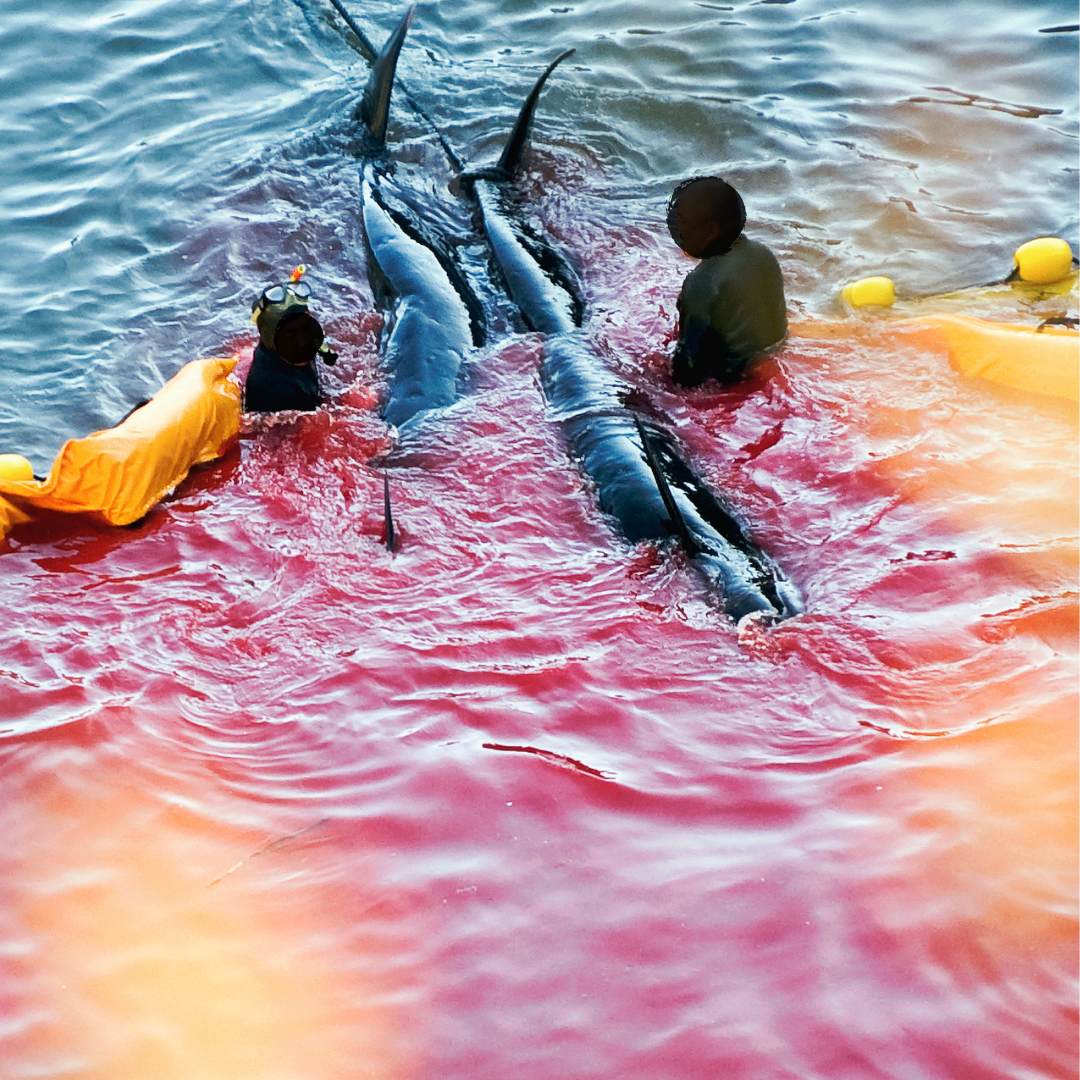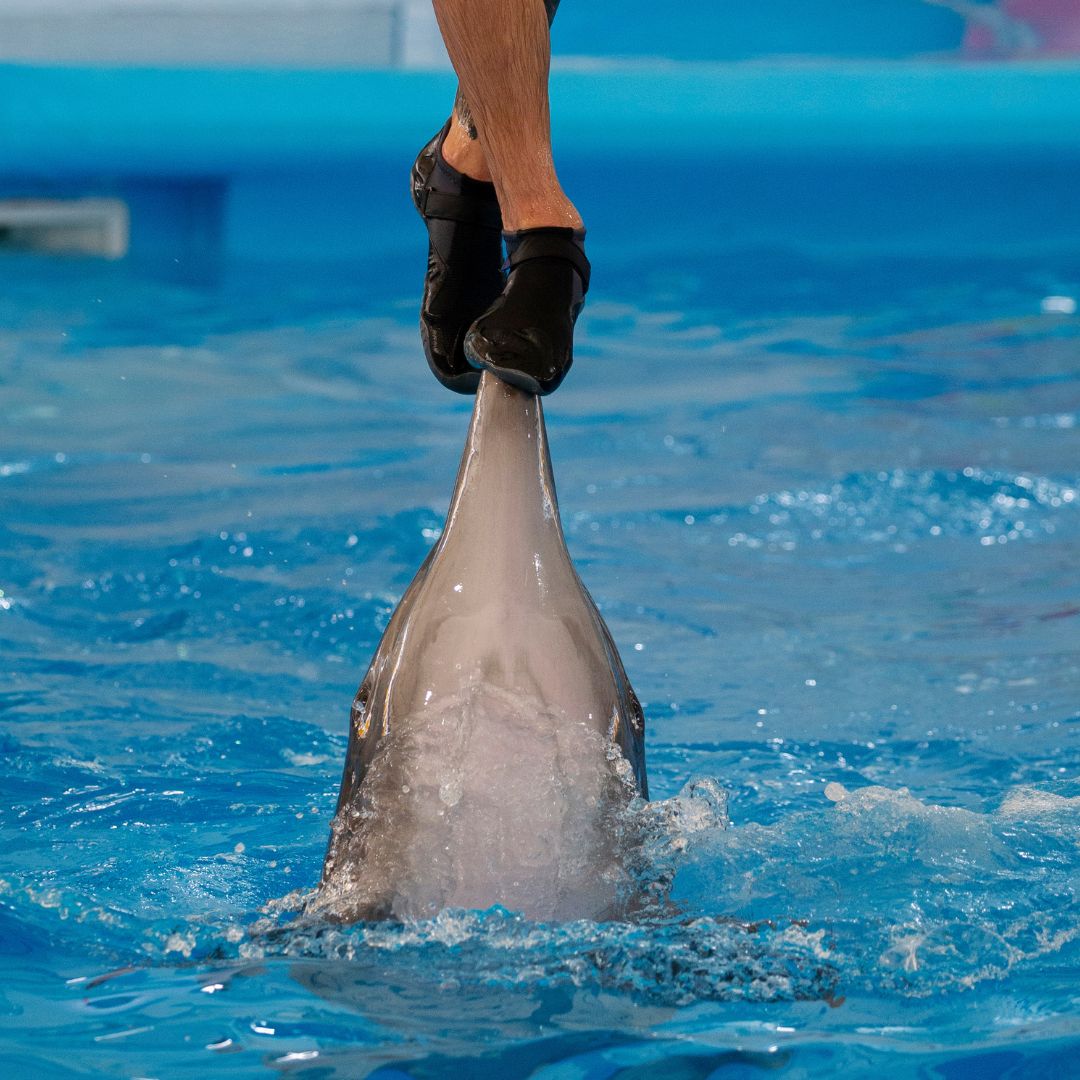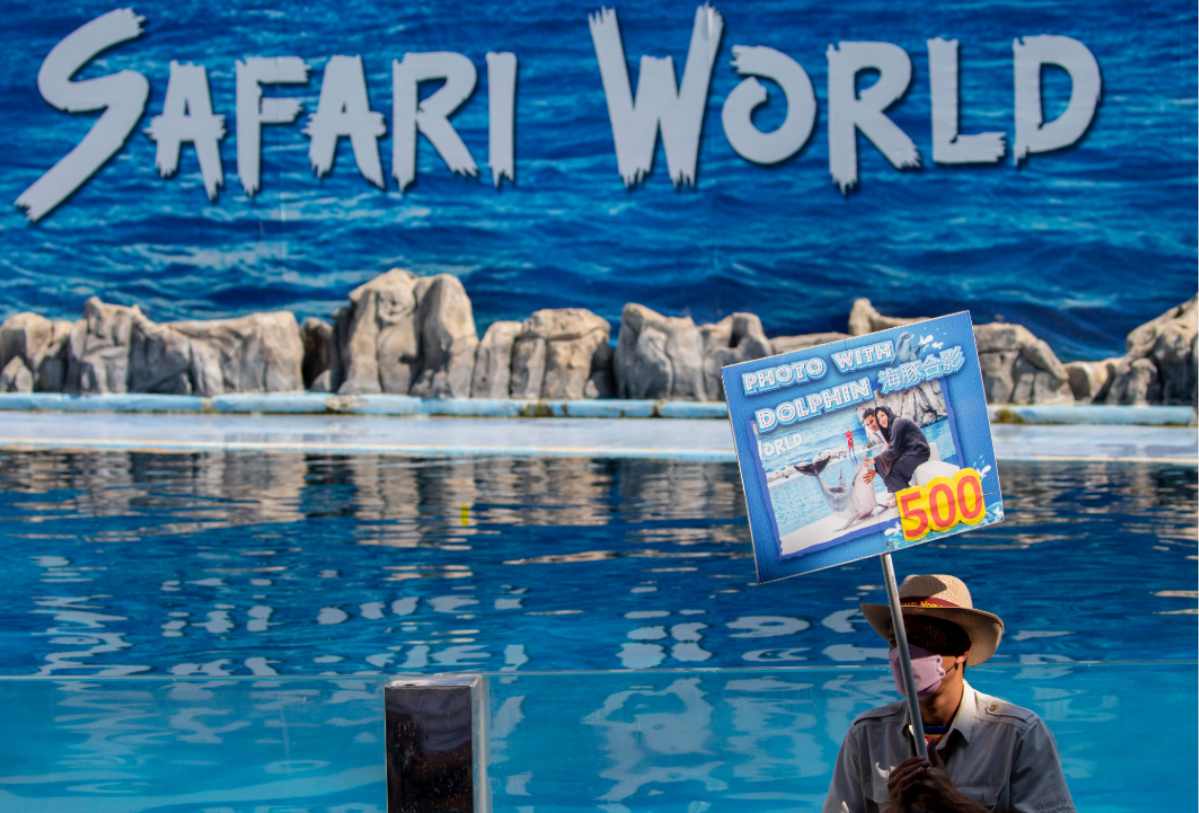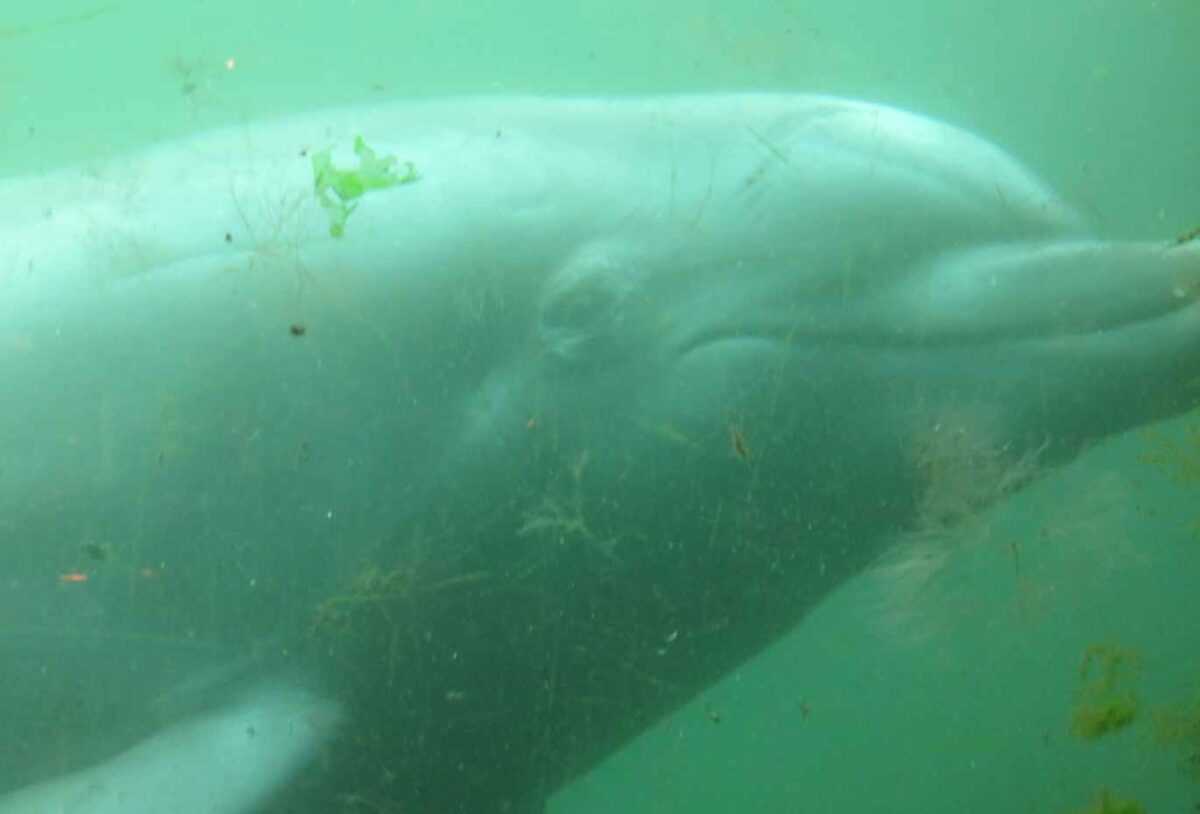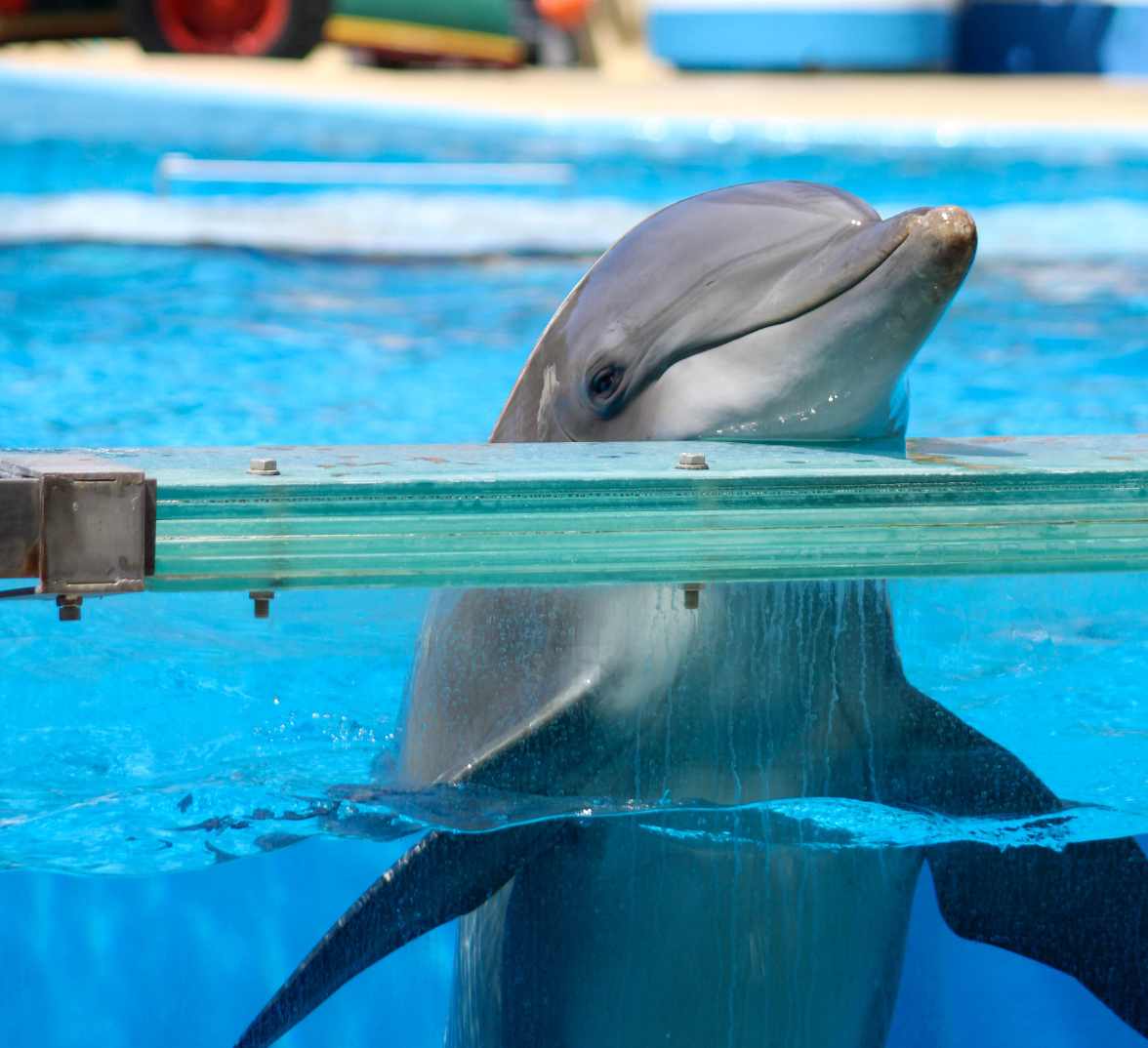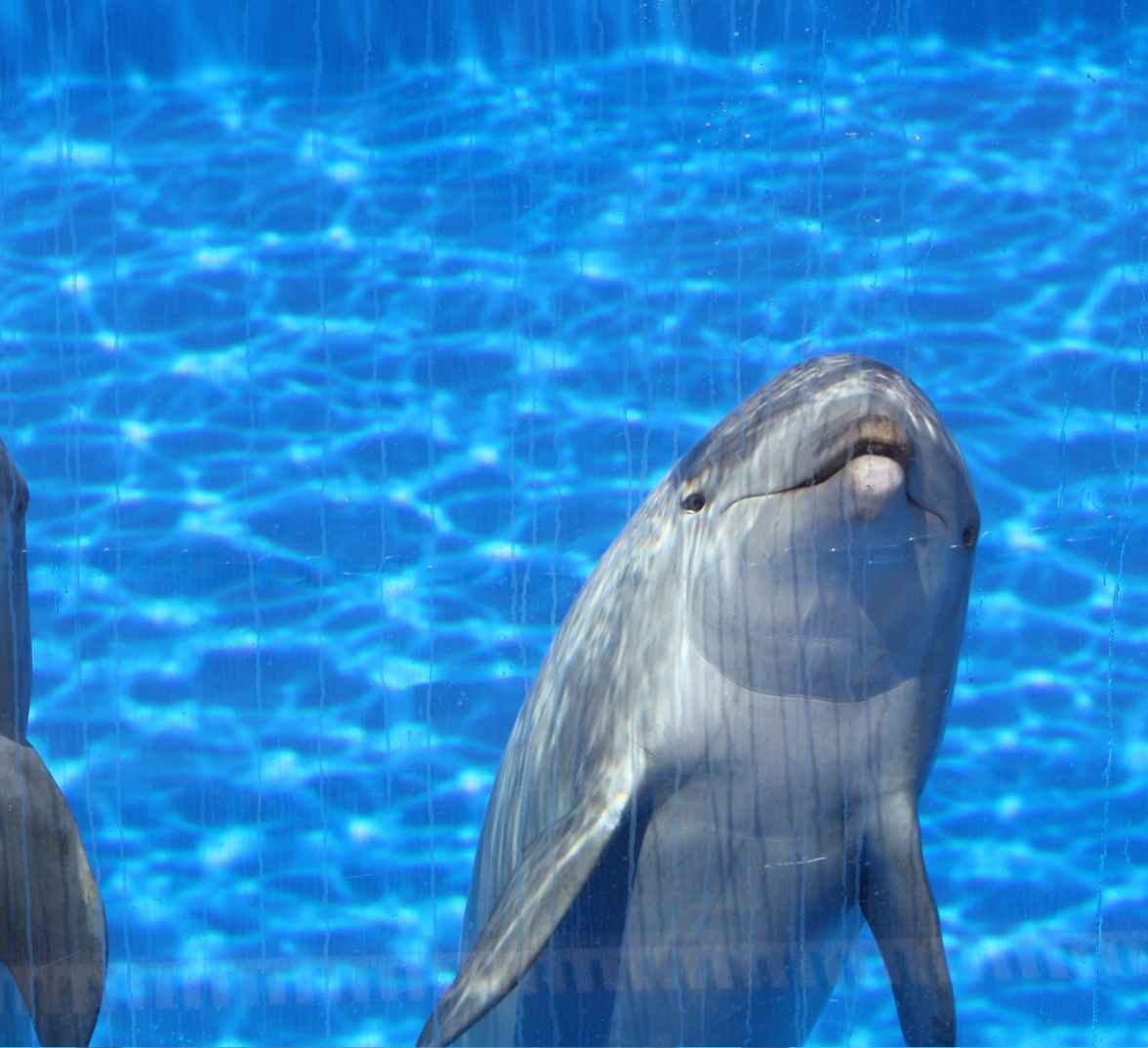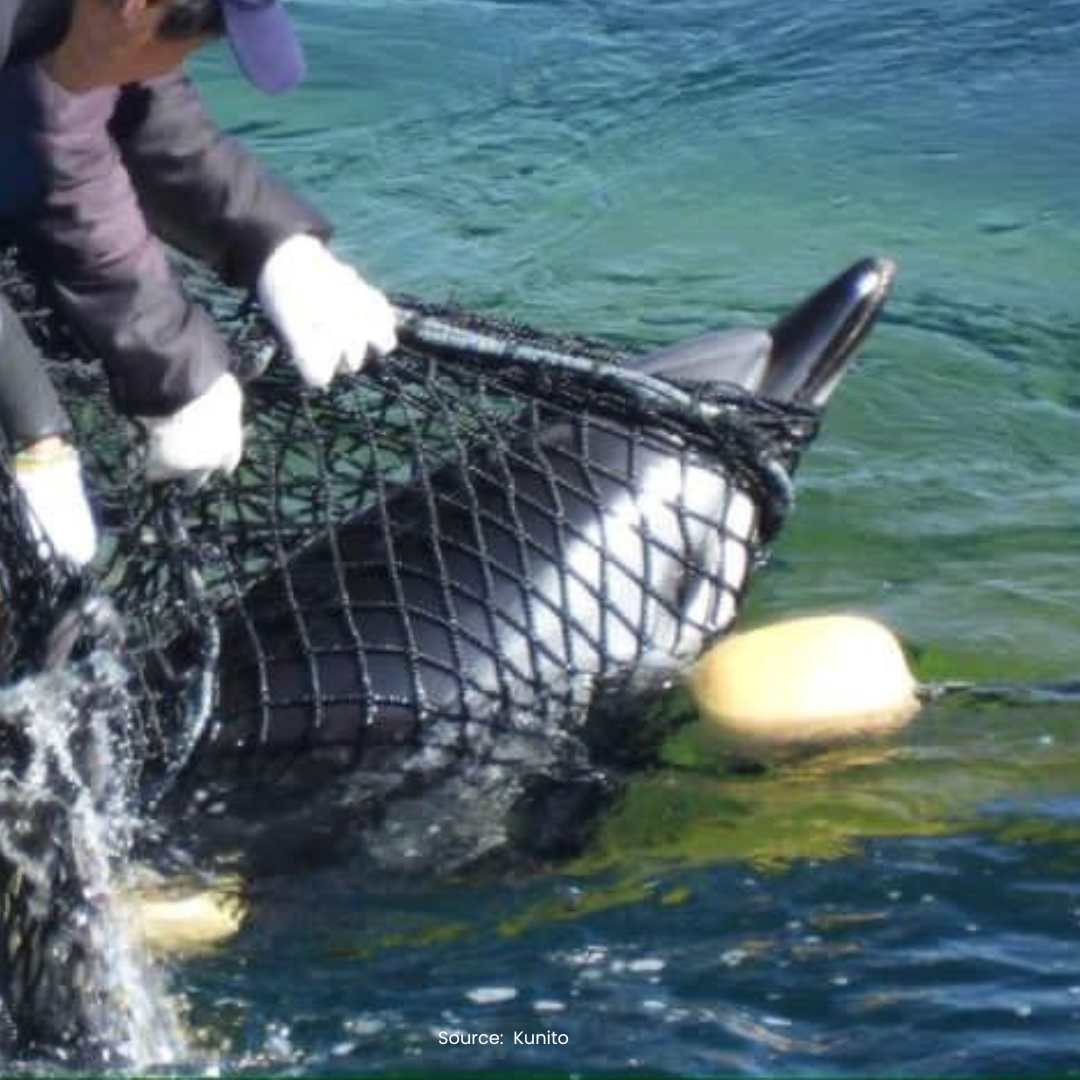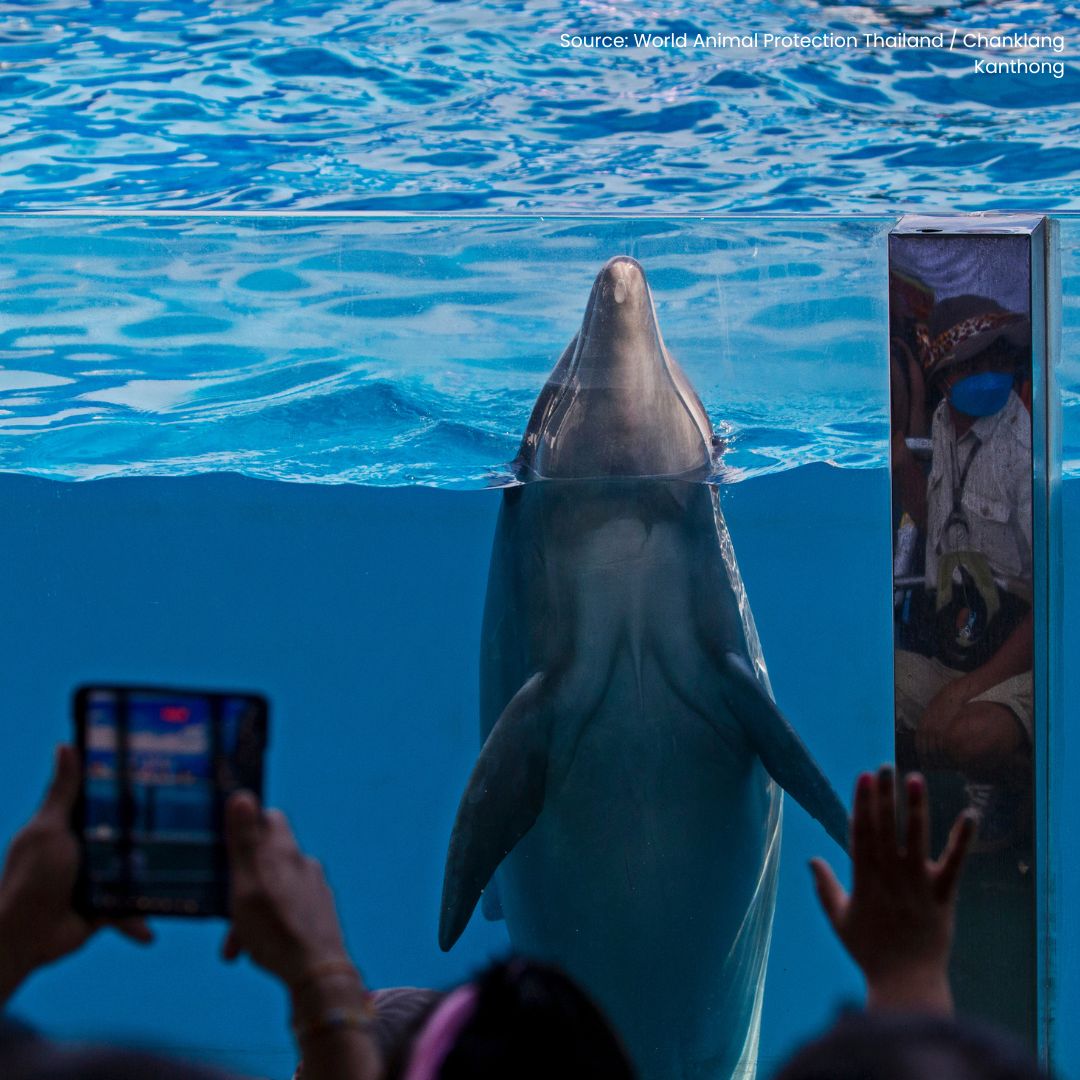From September to March, hunters in Taiji, Japan, chase entire dolphin families into a tiny cove, using loud, disorienting sounds to confuse and blind them.
Within the cove, a heartbreaking selection process unfolds. Young, female dolphins – deemed suitable for captivity by hunters and marine park staff are pushed apart and separated from their pods.
Unable to escape, these dolphins are forced to watch helplessly as the rest of the family – often older bottlenose dolphins and pilot whales – are brutally slaughtered.
These dolphin hunts are being driven by the global captivity industry – and tourism dollars are keeping it alive.
